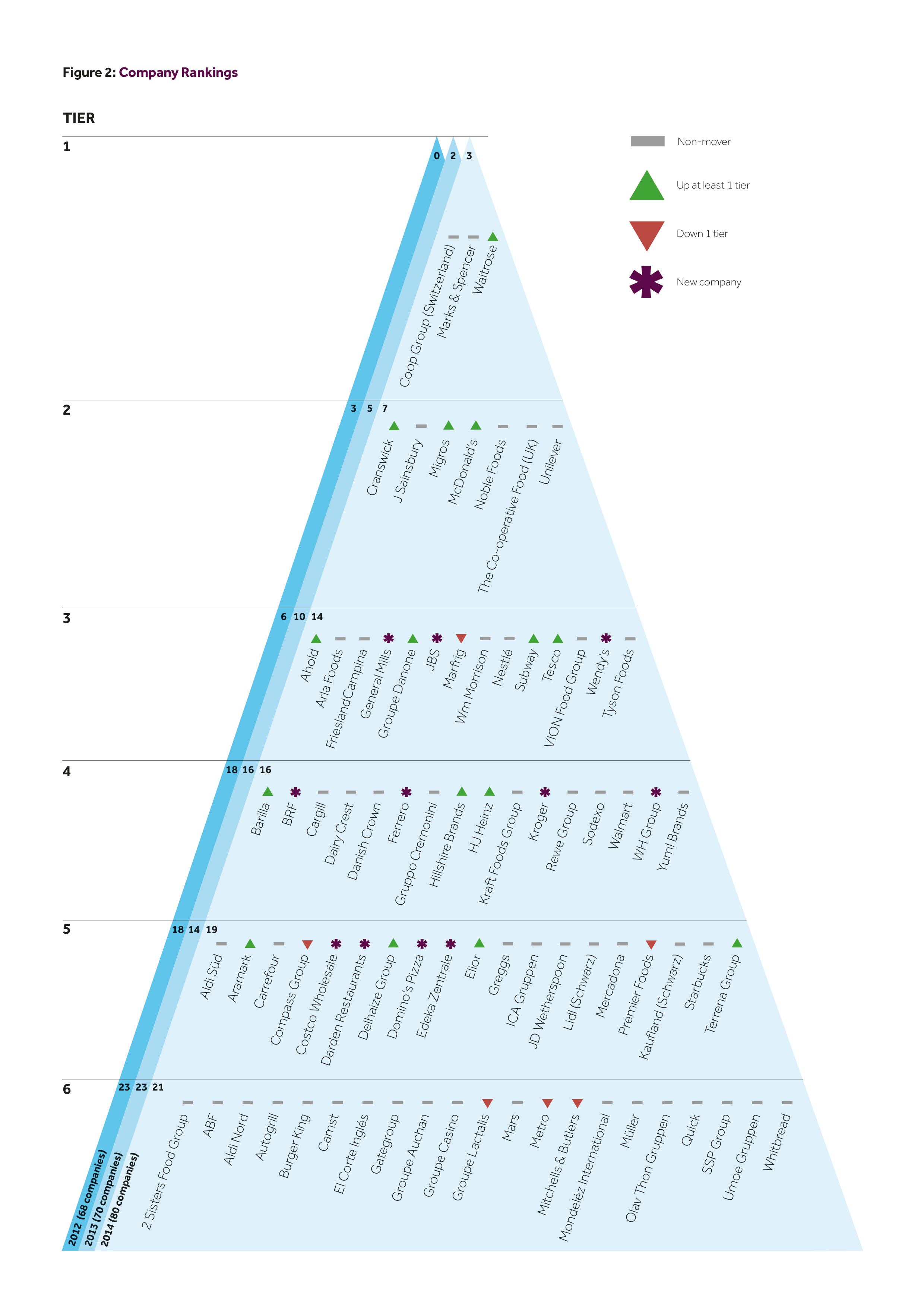A total of 80 companies were assessed on their animal welfare practices according to historical data published online.
They were ranked from one to six on that basis only by CiWF’s global Business Benchmark in Farm Animal Welfare (BBFAW) report, which was released yesterday (February12) and compiled in conjunction with World Animal Protection and Coller Capital.
Those companies ranked first, which include Marks & Spencer and Waitrose, were ‘animal welfare leaders’; while those ranked sixth did not have animal welfare on their business agenda, according to the report.
Farm animal welfare was a low priority for many food companies, said BBFAW report director Nicky Amos.
‘Immature business issue’
“With 40 of the 80 companies appearing in the lowest two tiers of the benchmark, it is evident that farm animal welfare remains an immature business issue,” Amos added.

However, it was encouraging that 84% of the companies covered in the assessment acknowledged farm animal welfare as a business issue, she said.
“This suggests that companies are starting to respond to the growing interest being paid to the food industry on this issue.”
More than a quarter (24) of the companies in the report were placed in the first three tiers, suggesting they had good or very good animal welfare priorities.
The remaining 56 companies were placed in the bottom three tiers, suggesting they had average to no animal welfare priorities.
Food manufacturers and retailers were some of the best performing businesses in the report and excelled where restaurants and bars were failing, it claimed.
Discount retailers had also begun to address higher animal welfare in their supply chains, it added.
“For example, Lidl sells plant-based alternatives to foie gras and uses a cage-free housing system for rabbits in Belgium.”
Key issues
But key issues, such as close confinement and long-distance transport for live animals, still remained for most firms, it added.
In response to the BBFAW, a 2 Sisters Food Group spokesman said: "We note the BBFAW's audit is based solely on what is said by companies themselves and published on their own websites and not on any independent audits of day-to-day working practices.
"This audit was carried out in August last year, four weeks before 2 Sisters Food Group's new improved corporate website was launched.
"The new site carries substantially more information on our approach to animal welfare, and details on how we work with Red Tractor, Freedom Foods and many other to meet welfare rigorous welfare standards, which are independently audited in terms of both policy and actual working practices.
Philip Lymbery, CiWF ceo, said the results were encouraging. Companies such as Sainsbury, Cranswick, Noble Foods and McDonalds, had made it into tier two, showing progress was being made in the food industry.
“It suggests that it is realistic for food companies to take steps to improve their reporting and disclosure on farm animal welfare,” said Lymbery.

